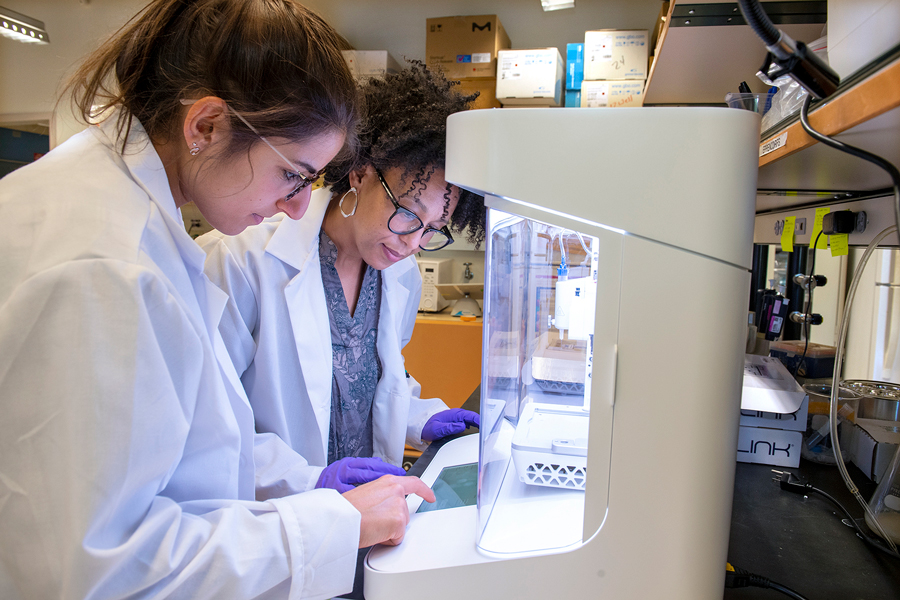Yale Joins Alliance Focused on Faculty Diversity

Yale University is among the key partners of a new, multi-institutional effort supported by the National Science Foundation (NSF), to design and implement strategies to increase the number of faculty from groups historically underrepresented in science, technology, engineering, and mathematics.
With Brown University serving as the lead and grants totaling $3.3 million, the institutions will identify approaches to bolster diversity, equity and inclusion in academic programs that educate future STEM professionals by addressing hiring practices, with a specific focus on biomedical engineering. In addition to Yale and Brown, partners include Columbia University and Johns Hopkins University.
“Strengthening research, discovery and innovation in STEM and addressing some of society’s most pressing challenges requires inviting, welcoming and investing in scholars who bring diverse perspectives, experiences and backgrounds,” said Vicki Colvin, a Brown professor of engineering and chemistry who directs the Institute for Biology, Engineering and Medicine (I-BEAM) and is the lead investigator on the grant. “To make strides in this area demands addressing systemic obstacles in hiring and workplace practices, and being deliberate about cultivating inclusive communities that promote exploration and collaboration. This grant will help us recognize and create effective approaches that can benefit the entire sector.”
The award is part of NSF’s Alliances for Graduate Education and the Professoriate program, which supports alliances among higher education institutions to increase the number of historically underrepresented STEM faculty.

The grant will enable the four schools to create the Alliance for Relevant and Inclusive Sponsorship of Engineering Researchers. The members will aim to promote equity and inclusion by extending the professional networks and opportunities of young biomedical engineering scholars, and in doing so, to increase the visibility, collaborations, and professional successes of diverse young researchers.
The ARISE Alliance will encourage more connections between early-career scholars — doctoral candidates, postdoctoral research scholars and early-career faculty — and their colleagues at the partner institutions. Participants will have access to a motivated and trained cadre of faculty “sponsors” who will actively promote their research and support networking activities and extended campus visits. Longer term, these networks will translate into greater diversity among faculty in the ARISE Alliance’s academic departments, project leaders say.
"Developing a supportive professional network is an important part of advancing in academia and becoming a successful faculty member,” said James Duncan, the Ebenezer K. Hunt Chair and Professor of Biomedical Engineering, Electrical Engineering, and Radiology & Biomedical Imaging. “Yale’s Department of Biomedical Engineering (BME) strives to help all our early-career faculty, postdoctoral scholars, and doctoral candidates to build such networks. In addition, we are dedicated to continuing to grow a more diverse BME faculty both here at Yale and nationally. We believe that this unique, collaborative award from the NSF will help us move in all of these positive directions, in partnership with our colleagues at Brown, Columbia and Johns Hopkins."
As measuring impact is central to the award requirements, internal and external advisory boards will routinely review the ARISE Alliance’s progress, engage with sponsors and strategize future steps. The alliance team is also developing and distributing sponsorship and hiring guides for biomedical engineering.
In addition to Duncan, Kathryn Miller-Jensen, associate professor of biomedical engineering & molecular, cellular & developmental biology, serves as a co-investigator on the grant.

